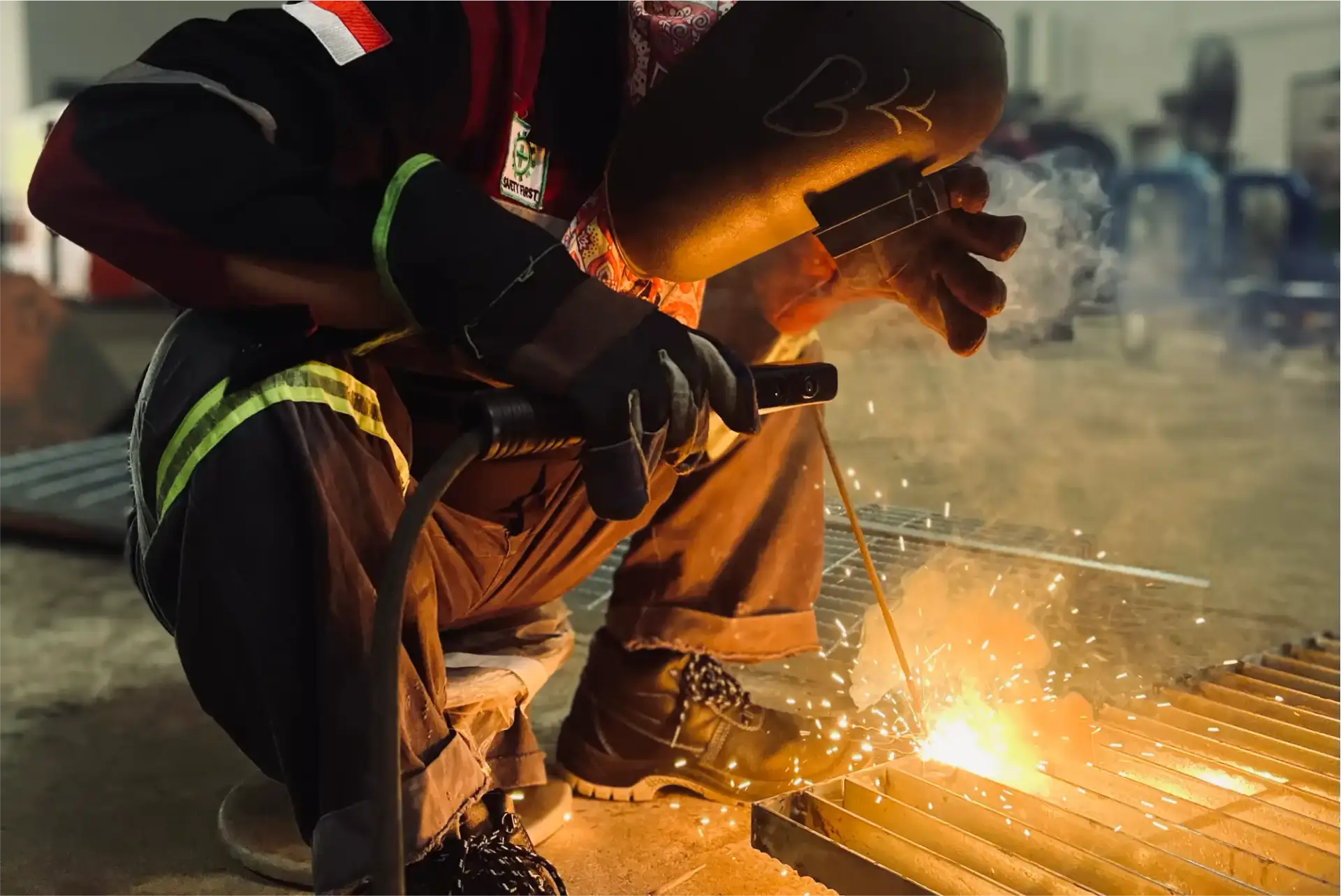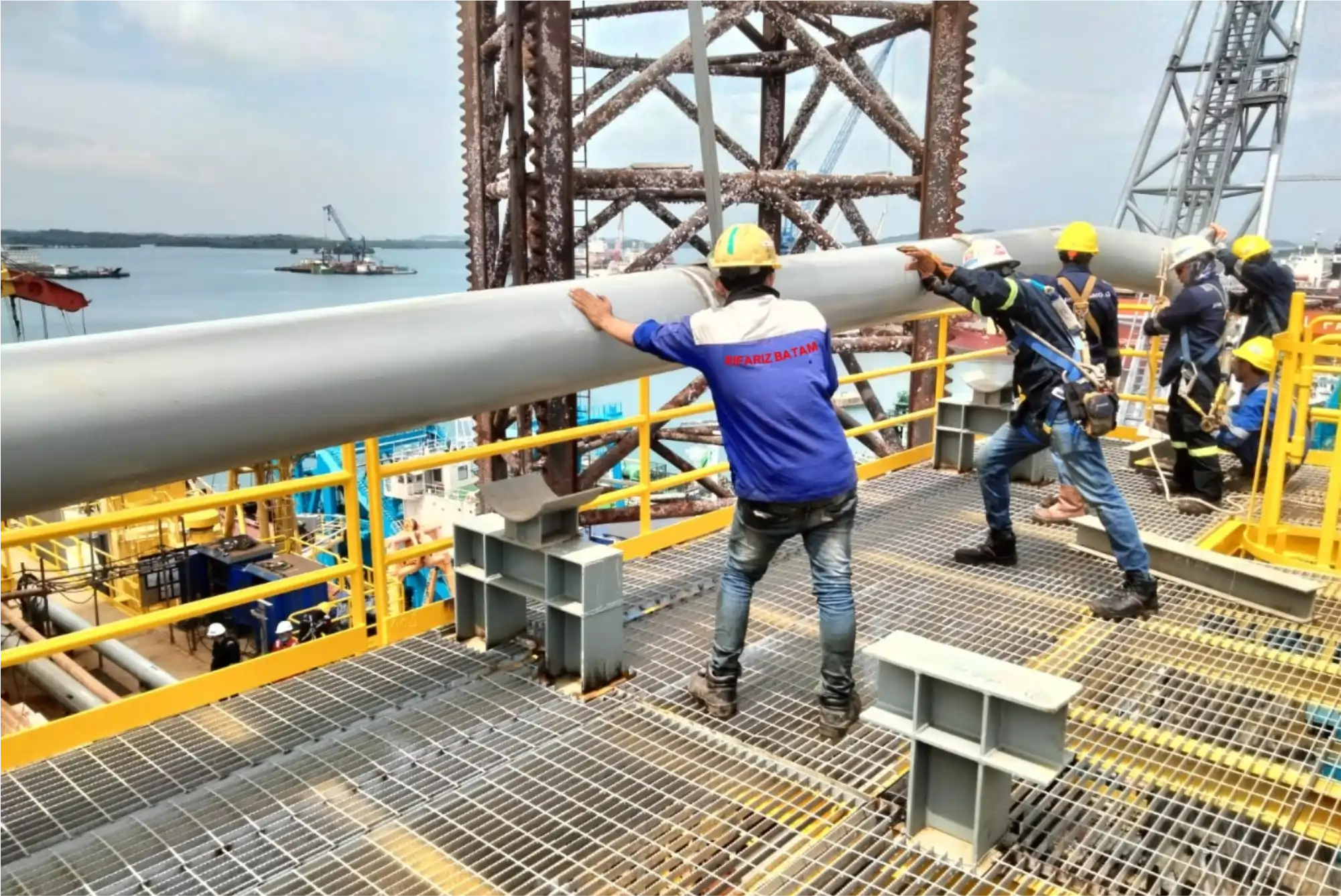Fabrication in Engineering, Oil & Gas Industries: Definitions, Techniques, and Best Practices
Fabrication plays a crucial role in the engineering and oil & gas industries. In daily operations, effective fabrication can determine project success, from time efficiency to the quality of the final product. This article dives deep into fabrication, covering its definition, key techniques, critical considerations, and real-world case studies.
1. What is Fabrication?
Fabrication is the process of transforming raw materials, such as metals or other materials, into semi-finished or finished products using various technical methods. In the oil & gas industry, fabrication is used to create essential components like pipelines, storage tanks, steel structures, and heavy machinery parts.
This process involves a combination of design, planning, and execution with advanced technology to ensure products meet strict technical and safety standards.
2. Key Fabrication Techniques
Fabrication encompasses a variety of technical methods, depending on the materials used and the desired end product. Here are some major techniques:
a. Cutting
- Techniques like laser cutting, plasma cutting, and water jet cutting ensure high precision in material cutting.
b. Welding
- Welding methods such as MIG welding, TIG welding, and submerged arc welding are widely used for steel structures and pipelines.
c. Bending
- Materials are bent to form required shapes, commonly seen in pipe or steel plate fabrication.
d. Machining
- Tools like CNC milling and turning are used to shape materials into specific components.
e. Coating
- Coatings, such as galvanization or powder coating, are applied to enhance material durability, especially in extreme oil & gas environments.
f. Assembly
- The final stage combines fabricated components into complete products.
3. Key Considerations in Fabrication
Achieving high-quality fabrication requires attention to several critical aspects:
a. Material Quality
- Selecting high-quality materials, such as stainless steel or specialty alloys, ensures the product can withstand extreme conditions.
b. Design and Specifications
- Good designs must include technical calculations, dimensional tolerances, and operational safety.
c. Technology and Equipment
- Leveraging modern technologies, like automated fabrication systems, improves efficiency and precision.
d. Adherence to Standards
- Fabrication processes must comply with industry standards such as ASME, API, or ISO to ensure safety and reliability.
e. Workforce Training
- Skilled and experienced operators are essential for successful fabrication.
f. Environmental and Safety Considerations
- Ensure fabrication processes are efficient, safe for workers, and environmentally friendly.
4. Case Study: Steel Structure Fabrication for an Oil Refinery Project
Project: Building an oil refinery in Southeast Asia.
Requirements: Steel structures that can withstand heavy loads and extreme weather conditions.
Process:
- Design: Engineers designed earthquake- and corrosion-resistant steel structures.
- Cutting and Welding: Plasma cutting was used for steel plates, while submerged arc welding ensured strong joints.
- Coating: Galvanized coatings were applied to prevent corrosion in marine environments.
- Testing: The structures were tested through load simulations and non-destructive inspections (NDT).
- Outcome: The structures were installed on time, reducing material waste by 20% thanks to laser cutting technology.
Benefits: Well-planned fabrication improved time efficiency, reduced material costs, and ensured project safety.
Conclusion
Fabrication is a crucial element in the engineering and oil & gas industries, involving a combination of advanced technology, skills, and effective management. By understanding key techniques, paying attention to detail, and adhering to stringent standards, fabrication processes can deliver optimal results for industrial projects.
Interested in learning more about fabrication techniques or need professional services? Contact our fabrication experts for tailored solutions to your needs!







I just could not leave your site before suggesting that I really enjoyed the standard information a person supply on your visitors? Is gonna be back ceaselessly in order to inspect new posts.